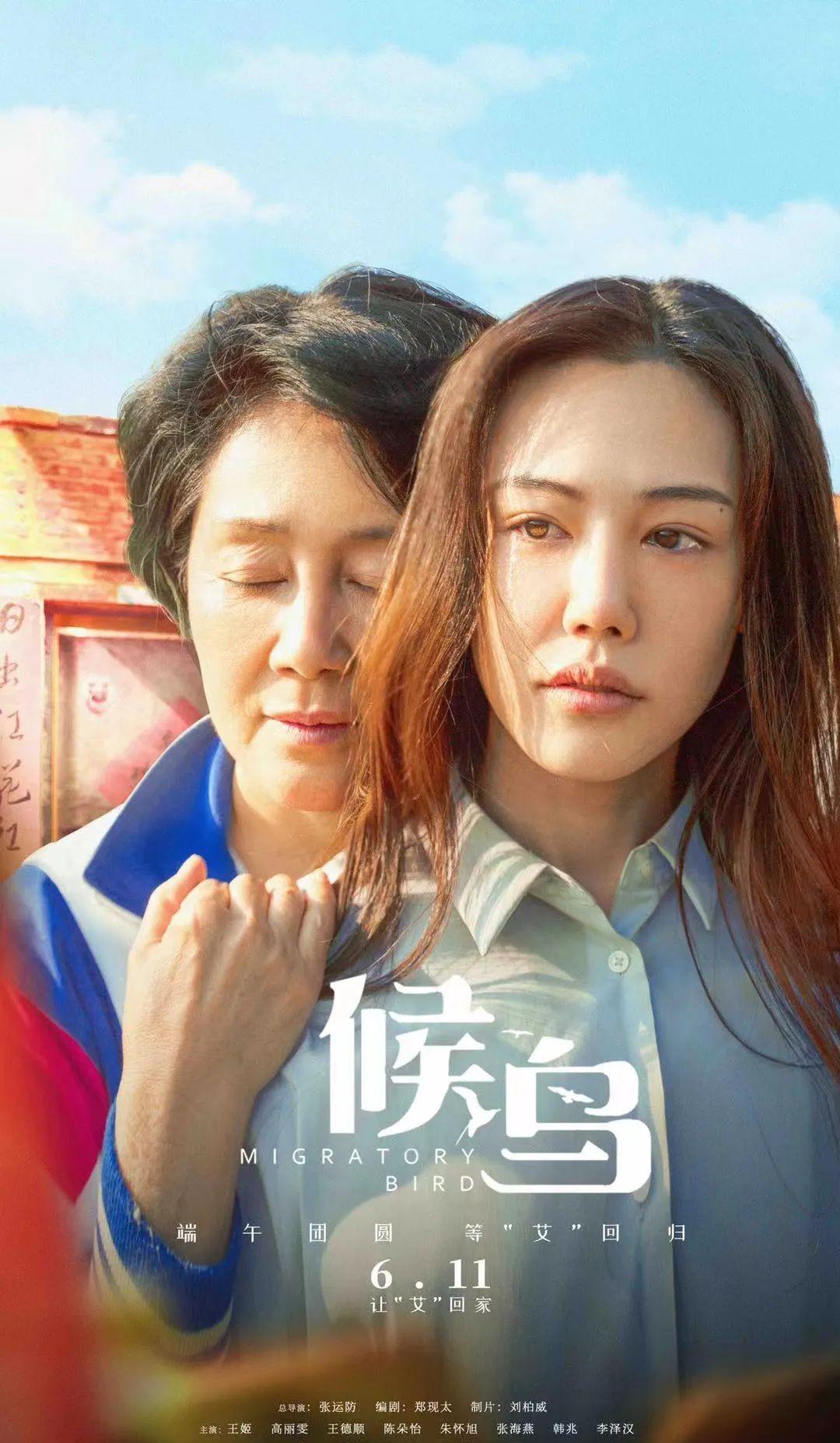
As the only family film in the Dragon Boat Festival, Wang Ji and Gao Liwen's mother-daughter collaboration "Migratory Bird" presents the story of mother and daughter all the way forward with warm and sincere artistic techniques, and the real emotions of the mother and daughter in the play are revealed, bringing warmth and healing emotional resonance to the audience, and re-exploring what is the "filial piety culture" in the context of the new era.
Gao Liwen plays Shan Fei, who works hard all the way from the small countryside of Gansu to the bustling metropolis, and in the process of growing up, he is farther and farther away from his mother, leaving behind the regret of "children want to raise but do not wait", and finally can only complete the redemption of their filial piety with a road trip that makes up for the dead sheep. This is an adult fairy tale on the journey, focusing on the phenomenon of "the elderly stay at home and their children working outside", but it is very touching.
Wang Ji and Gao Liwen are real mother and daughter, so the Fang Wenzhi and the single-flying mother and daughter they played are easy to reveal their true feelings and appear real and simple. After all, due to the nature of their work with each other, they gather less and leave more on weekdays, which is very suitable for the mother-daughter image and character experience in the movie, and it is easy for the audience to have a sense of substitution.
There are not only the journeys of mother and daughter, but also the repeated retracement of the details of the mother-daughter relationship in the past, and the fantasies of solo flying when the mother suffered from illness. The contrast between beauty and cruelty, the mixture of the past and the present, makes people look very impactful, makes people deeply feel the greatness of family affection and maternal love, and the daughter's ultimate guilt.
I have to say that The performance of Wang Ji and Gao Liwen is vivid, just like the scene when Fang Wenzhi saw Shan Fei in the hospital, Wang Ji's eyes and words are very vivid; Shan Fei sobbed in bed when she spent the night at her grandmother's house, and the kind of powerlessness and regret after she lost precious things was also very sincere. And Zhu Huaixu played a "Xiaofei" when she left her grandmother, her tearful eyes and slightly trembling lips also vividly interpreted the strong feelings.
The integration of literary, highway, suspense and other elements, as well as flashbacks and interludes, and the journey through six provinces and more places, so the beauty of the motherland has been photographed, making people's perception quite rich, and the story has a clear grasp of the main line, so it does not seem messy. The city cannot be integrated, and the hometown cannot go back, which is also the tragedy of the daughter's "migratory bird".
The concept of "road" mentioned several times in the whole film, including the direction of the road, the mastery and judgment of the road, etc., highlights the conflict between people and the morality of traditional ethics and filial piety when they grow up. With the theme of "You grew up with me, and you have grown old", the whole film tells the regret of family affection between a mother and daughter, showing the reality of the wandering youth's inability to reunite with their parents.
From the perspective of the entire plot extension, Fang Wenzhi refers to the mothers of all the children in the world who have left home, and Shan Fei also generally points out the daughters of migrant workers, and each mother hopes that her children can grow up healthy and happy, but the daughters gradually forget the family affection because of work, so the scene where the heroine releases her feelings in the end makes many people present cry.
The mother and daughter in this film repair the missing emotions in a romantic way, but convey the most realistic core: cherish the time with their loved ones, express love in time, and do not wait until it is too late to regret it.